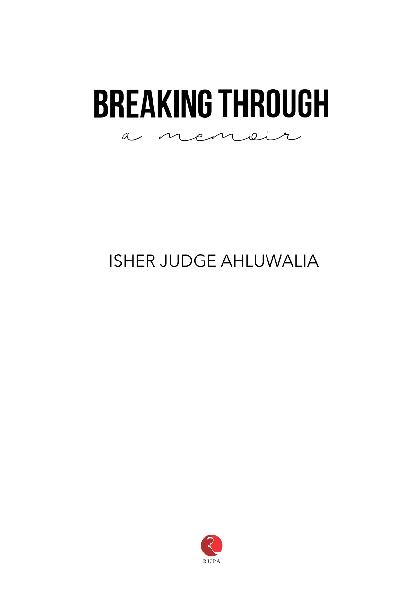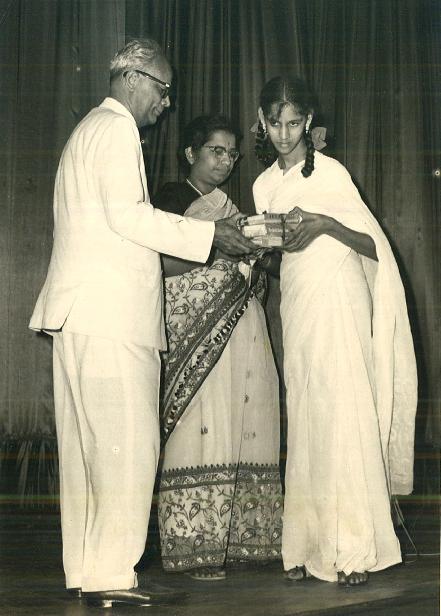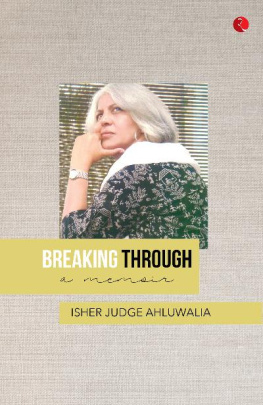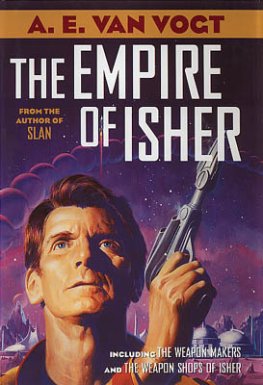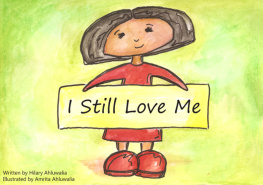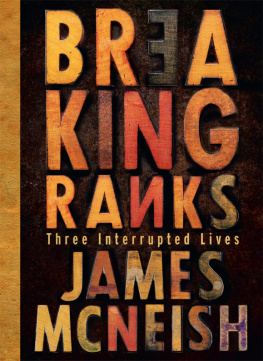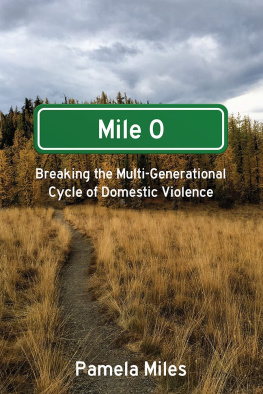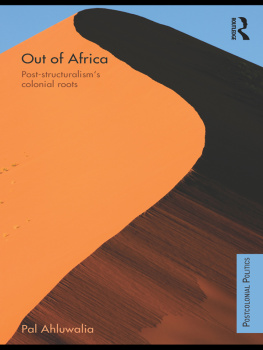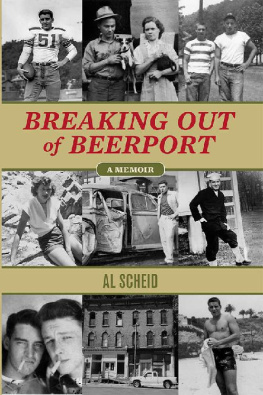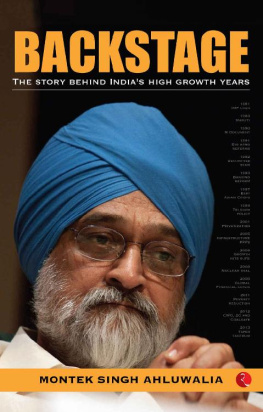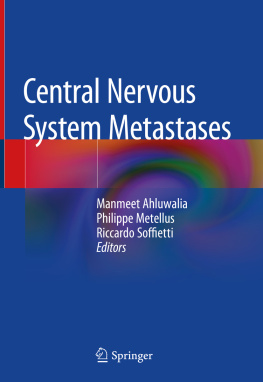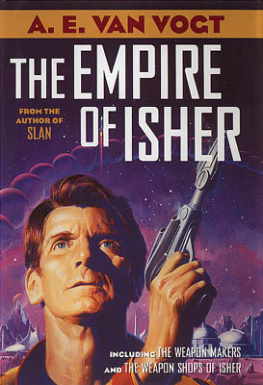BREAKING THROUGH
Published by
Rupa Publications India Pvt. Ltd 2020
7/16, Ansari Road, Daryaganj
New Delhi 110002
Copyright Isher Judge Ahluwalia 2020
The views and opinions expressed in this book are the authors own and the facts are as reported by her which have been verified to the extent possible, and the publishers are not in any way liable for the same.
All rights reserved.
No part of this publication may be reproduced, transmitted, or stored in a retrieval system, in any form or by any means, electronic, mechanical, photocopying, recording or otherwise, without the prior permission of the publisher.
ISBN: 978-93-90260-28-7
First impression 2020
10 9 8 7 6 5 4 3 2 1
The moral right of the author has been asserted.
This book is sold subject to the condition that it shall not, by way of trade or otherwise, be lent, resold, hired out, or otherwise circulated, without the publishers prior consent, in any form of binding or cover other than that in which it is published.
To my daughters-in-law Sarah and Shilpa,
who have enriched my family beyond anything I could have imagined.
CONTENTS
FOREWORD
I met Isher 20 years ago in Bangalore when her son decided to pursue law. Instantly, her frankness coupled with her obvious intelligence charmed me and I knew that we would get along like a house on fire.
Time passed and soon we discovered our similarities. We were both from middle-class backgrounds and headstrong in our own ways. She studied in MIT, USA on a scholarship at a time when travelling abroad and pursuing a career were strongly considered a mans domain. Meanwhile, I did engineering in India under the unwanted glare of being the only girl in my batch of hundreds of boys. Then there was the love of books. Her husband Montek, she and I are avid readers and learners. I read her books too and it dawned on me that she wasnt just a great researcher but also a thoughtful author. Her ideas about immigration and poverty in the metro cities helped me with my philanthropic work. The bonding was certain, of course. The more time I spent with them, the more comfortable I grew. Her home in Delhi became my second home whenever I visited the city.
Her childrentwo boyswere older than mine and Isher allowed me an authentic view into her life as a parent. Through her, I observed the modern world the kids lived in and learnt how to raise my two teenage children in an environment when ustheir parentswere famous in their own right.
But the memory that remains starkly vivid in my mind is our trip to Egypt. We were in Cairo when I got a fateful callmy father had breathed his last back in Bangalore. I cried, I sobbed, I was devastated. Egypt was the last place I wanted to be at that moment. I felt helpless, unable to reach Bangalore as quickly as I wanted to. Thats when Isher took charge of meshe consoled me, fed me and stayed with me. She took me to the ambassadors house for dinner where I met Shiv Shankar Mukherjee and his wife Nina. They were delightful hosts and Isher stayed near me the entire evening, knowing that my mind was back home. For her healing words and actions, I can never forget her.
This book was inevitableone that I had seen coming long before she did. It is about her adventurous journey and the path that she has bravely carved for herself. I am hopeful that this book will encourage young girls to face challenges in their life and overcome them to become strong, to become fearless, to believe, to find success and to lead a life against all odds.
Sudha Murty
Author, Philanthropist and
Chairperson, Infosys Foundation
28 July 2020
1962. Receiving the award for the best all-round student at Shri Shikshayatan Vidyalaya
One
PICKLED ROOTS
I t was 1985 and I had spent five years juggling motherhood and writing my first book, Industrial Growth in India: Stagnation since the Mid-Sixties, which had just been published by Oxford University Press (OUP). While I was excited at being published by a reputed academic publisher, I wanted the book to have a wider readership. So I decided to write to the renowned columnist and author Khushwant Singh asking if he would be willing to review my book in his syndicated column. Although I had met him recently, I didnt know him well at all and was pleasantly surprised when he responded promptly with a postcard, suggesting he could discuss the matter with me at his Sujan Singh Park residence in New Delhi a week later. He asked me to bring along my CV and a copy of the book, offering me the choice of coming at 4 p.m. if I wanted tea, or 6 p.m. if I wanted a drink.
I took him up on tea, and arrived precisely at 4, well aware of his reputation as a stickler for time. Far more important people than me had seen his front door slammed in their face for being 15 or 20 minutes late. Khushwant skimmed through the contents page of my book and then my CV, showing moderate interest in my education at Presidency College (now Presidency University), Calcutta, Delhi School of Economics (DSE) and Massachusetts Institute of Technology (MIT), as well as my areas of research. He then began to ask me questions about my family, where I grew up, and other subjects I thought had no bearing on the book. Suddenly, his eyes lit up when he learnt my parents were originally from Lahore and that my great grandfather was Bhai Wadhawa Singh, a well-known pickle maker famous for his meetha gobhi shalgam ka achaar , which he sold in his shop in Anarkali Bazaar. Khushwant promptly lost all interest in economics or industrial stagnation, and excitedly called out to his wife in the next room, Kaval, guess what, come heredid you know I have the great granddaughter of Bhai Wadhawa Singh sitting here with me?
I must confess that as a young scholar who had just published a book after five years of hard, empirical research on the Indian economy, I was a little taken aback that Khushwant was less impressed with my academic achievements than the fact that I was the great granddaughter of a well-known pickle maker in pre-Partition Punjab! Although we take our roots for granted, they are often what is most interesting about us.
CALCUTTA SIKH
My family name Judge, which I retained as my middle name after marriage, has nothing to do with a legal or judicial lineage. It is simply an anglicization of the Punjabi name Jaj. Despite the fact that my family had established a name in the pickle business in Lahore, my father decided to move out of the city in 1940 and take up an agency for paint distribution in Indore. His grandfathers business was not large enough to meet the needs of his growing family and it is quite likely that he also wanted to move to modern industry. I was born five years later as the ninth child in what would ultimately be a full cricket team of 11! I had nine sisters and a brother, who was the third oldest. My mother was a simple woman, who had studied only up till Class IV, but she had a strong religious and spiritual inclination which became a very powerful influence in my life.
